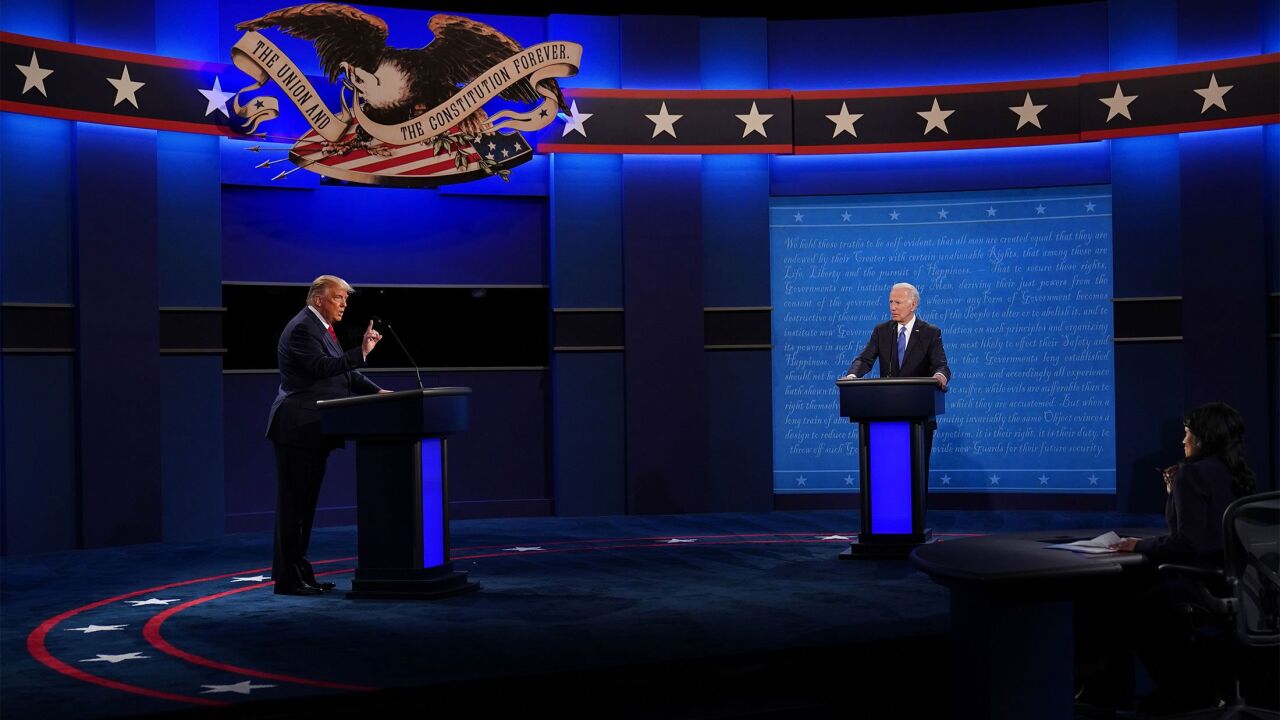(Bloomberg) President Donald Trump said he’s willing to raise the U.S. gas tax to fund infrastructure development and called the tax-overhaul plan he released last week the beginning of negotiations.
“It’s something that I would certainly consider,” Trump said Monday in an interview with Bloomberg News in the Oval Office, describing the idea as supported by truckers “if we earmarked money toward the highways.”
Trump released a tax plan on April 26 that would cut the maximum corporate tax rate to 15 percent from the current 35 percent. The same reduced rate would apply to partnerships and other “pass-through” businesses.

He said he is willing to lose provisions of his tax plan in negotiations with Congress but refused to specify which parts. He also repeated his call for a “reciprocal tax,” which would be aimed at imposing levies on imports to match the rates that each country charges on U.S. exports.
“Everything is a starting point,” Trump said of his tax plan.
The Trump proposal also would eliminate the alternative minimum tax and the estate tax, cut individual income-tax rates and repeal an investment-income tax for high earners, fulfilling a conservative wish list from the past several years.
The one-page plan was silent on both a gas tax or the notion of a reciprocal tax. Trump said he has made no commitments on an increased gas tax, but “it’s something I would certainly consider.”
Declining Revenue
The federal per-gallon taxes of 18.4 cents on gasoline and 24.4 cents on diesel were last raised in 1993. Since then, revenue from the fuel levies has declined as inflation robbed them of their purchasing power and the average fuel economy of a passenger vehicle increased by 12 percent, according to the U.S. Department of Transportation.
Business and transportation groups have called for increasing the federal gas tax for years to help sustain and increase funding that flows to states through the Highway Trust Fund, which Congress has kept solvent with transfers from other sources. The trust fund is projected to become insolvent by 2021 without additional funding, according to the Congressional Budget Office.
But previous efforts failed amid opposition spurred in part by a pledge not to raise taxes from Grover Norquist’s Americans for Tax Reform that many lawmakers signed. States have been forced to supply an increasing share of transportation funding, and at least 40 states—including many led by Republican officials—have raised their own fuel levies since 1993, according to Moody’s Investors Service.
‘Big Believer’
In repeating his call for a reciprocal tax, Trump emphasized his enthusiasm for the approach, which resembles a system of import tariffs that would match those imposed by other countries on U.S. goods.
“I’m a big believer in a reciprocal tax,” Trump said. “If a country’s charging us 52 percent and we’re charging them nothing for the same product going back and forth? Nobody can fight it.”
Trump’s reciprocal concept differs from the “border-adjusted tax” that House Speaker Paul Ryan has proposed. Ryan’s plan calls for replacing the current corporate income tax with a 20 percent tax on U.S. companies’ domestic sales. Their imported materials would be subject to that tax, but not their exports—hence, the “border-adjusted” description.
Trump hasn’t endorsed the border-adjustment idea, which has been vehemently opposed by retailers and other industries that rely on imports, and it wasn’t part of the outline for a tax plan that his economics aides released last week.
The nonpartisan Committee for a Responsible Federal Budget released a rough analysis saying Trump’s plan—in its current form—could cost $3 trillion to $7 trillion over the next decade. White House Budget Director Mick Mulvaney dismissed cost estimates of the plan on CNBC last week, saying there’s not enough detail for accurate projections.
Wants Permanent Cuts
Because the tax legislation would be unlikely to gain Democratic senators’ support, GOP leaders plan to use a procedure that would allow the measure to pass on a simple majority vote. But under that procedure, legislation can’t add to the federal deficit beyond the normal 10-year federal budgeting window.
So unless the tax plan balances any tax cuts with enough revenue-raising measures, such as ending exemptions, deductions and credits, the cuts would have to be temporary, possibly expiring within three years, based on a finding last month by the congressional Joint Committee on Taxation.
“I’d like them to be permanent,” Trump said. “Don’t forget, OK, so here’s something that’s very important. So we’re doing a very big tax cut. We need it.”
Trump said the tax cuts he’s seeking, along with renegotiated trade agreements, would serve as a badly needed stimulus to the economy.
The president called first-quarter economic growth, which the Commerce Department said declined to a 0.7 percent annual rate, “really bad.”
Although he’s taken credit for monthly job growth figures and stock market gains reported since taking office on Jan. 20, Trump said he’s not responsible for the GDP number.
“That’s really a left over from—in all fairness, I just got here,” he said. “So you’re growing at 1 percent or less, so we need a stimulus.”
—With assistance from Mark Niquette





